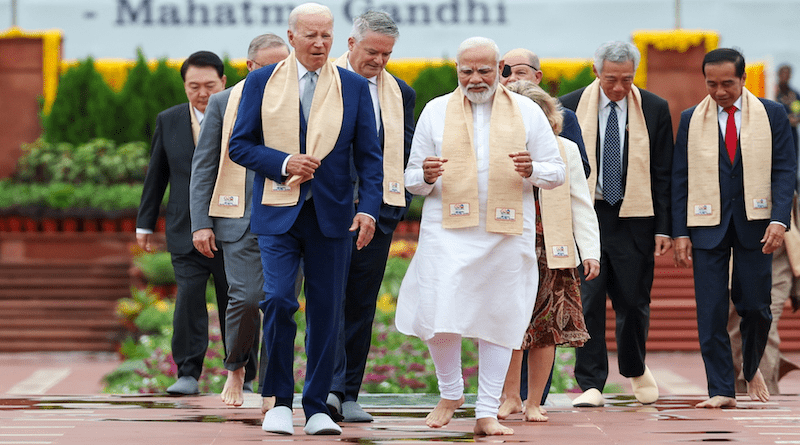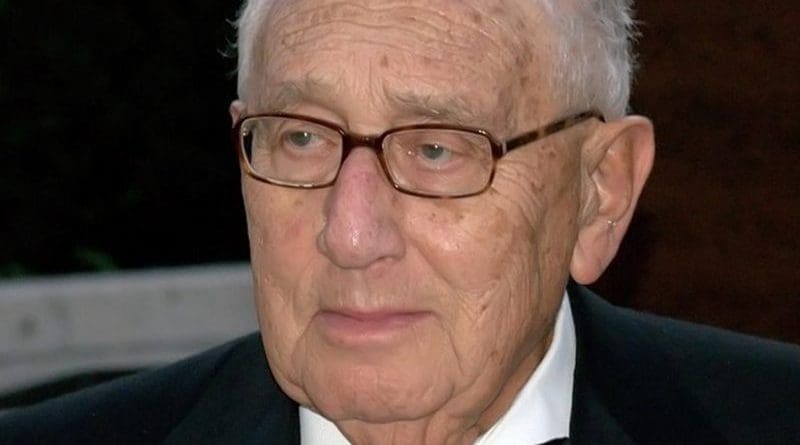How Long Will Bangladesh Remain Saddled with The Rohingya Problem?
Awami League government in Bangladesh has over the past decade expanded economic and political cooperation with Beijing, a relationship that the latter is happy to continue building as it seeks to reduce its reliance on traditional allies India and Western countries

INTRODUCTION
Throughout history, there have been incidents of genocide on particular people often based on religion. The most horrific one has been the Holocaust by Adolf Hitler’s Nazi Germany which still stirs the conscience of the people of the world. Such a genocide is taking place in Myanmar and the burden has been placed on the shoulders of Bangladesh, itself a developing country fighting its way out of poverty to a developing one. In June 2021 Bangladesh’s Foreign Minister told the attendees in New York of the bold decision and humanitarian gesture of Bangladesh Prime Minister Sheikh Hasina to provide shelter to the over a million Rohingya, as they fled atrocities in Myanmar, and the efforts of the government to ensure the wellbeing of Rohingya despite severe resources and space constraints.
Bangladesh’s Foreign Minister recalled the efforts of the international community including the General Assembly and the Human Rights Council in keeping the issue of Rohingya alive; while the efforts of the Security Council have always fallen short of concrete actions. He expressed hope that the Council would fulfill its Charter obligations and take urgent measures to resolve the crisis in Myanmar so that the Rohingya people can return to their homes in safety, security, and dignity. He also urged the regional countries and other stakeholders to play their due role.
The Foreign Minister recalled the efforts of the international community including the General Assembly and the Human Rights Council in keeping the issue of Rohingya alive; while the efforts of the Security Council have always fallen short of concrete actions. He expressed hope that the Council would fulfill its Charter obligations and take urgent measures to resolve the crisis in Myanmar so that the Rohingya people can return to their homes in safety, security, and dignity. He also urged the regional countries and other stakeholders to play their due role. He thanked the then President of the United Nations General Assembly (PGA) for convening the upcoming plenary session on Myanmar in the General Assembly.
US’ UNEQUIVOCAL SUPPORT TO BANGLADESH
As expected of the leader of the free world the United States of America strongly supported Bangladesh on the Rohingya issue, unfortunately, China and India’s geopolitical and geo-economic interests in Myanmar left Bangladesh to manage the Rohingya crisis alone. All three countries are eager to see repatriation take place, albeit for very different reasons. Myanmar’s military regime wants some refugees to return to assist with its definition at the International Court of Justice, where The Gambia has brought a case against it under the Genocide Convention for the 2017 crackdown on the Rohingya in Rakhine State.
WOULD THE MYANMAR MILITARY JUNTA TAKE BACK ROHINGYA REFUGEES?
From the regime’s point of view, allowing returns would undermine allegations that it committed genocide, which requires showing that the perpetrator had genocidal intent. More broadly, and however wishful its thinking may be, it believes that repatriation will alleviate the international pressure it is facing in the post-coup crisis. Yet it will only be willing to take back a limited number of refugees – likely far short of the 750,000-plus who entered Bangladesh in 2016-2017.
Myanmar authorities say no more than 500,000 fled to Bangladesh, claiming that some of these people are “newcomers” who had migrated illegally to Rakhine State. They have so far reviewed the eligibility of barely 15 percent of the Rohingya whom Bangladesh has put forward for repatriation. Of those, they have rejected around one-third. An official told Crisis Group that the process would move slowly, as the Myanmar side wanted to make sure there were no “extremists” among the returnees. The official added: “Those refugees who have settled in Myanmar for generations will want to come back and getting citizenship should be easy for them. Those who are newcomers from Bangladesh, they won’t want to come back”
INTRA-POLITICAL RIVALRY ON ROHYNGA ISSUE IN BANGLADESH
Bangladesh’s ruling political party, the Awami League government, was keen to show progress on repatriation to the public, including ahead of a general election scheduled for January 2024. At first, the decision to accept Rohingya refugees was popular in the Muslim-majority country. But over six years on, many are growing impatient with the situation, particularly Bangladeshis in Cox’s Bazar. Recent large-scale surveys have shown there is little support for even allowing the Rohingya to stay in Bangladesh until it is safe to return. Meanwhile, the opposition Bangladeshi Nationalist Party (BNP) has criticized the government’s handling of the crisis and put forward its sixteen-point plan for “resolving” it.
CHINESE GAME IN ROHYNGA ISSUE
For China, facilitating Rohingya repatriation is an opportunity to cement its position as a partner of Dhaka and Naypyitaw, the capital of Myanmar, at a time of heightened geopolitical competition with the U.S. It also wishes to project an image as a constructive player in the international arena – burnishing its credentials as a mediator, following its brokering of an agreement between Iran and Saudi Arabia in March. Since it emerged from its extremely stringent pandemic management measures, which it lifted in December 2022, and appointed a special envoy for Asian affairs at the end of 2022, Beijing has stepped up its engagement in Myanmar and seems keen to increase its leverage with the military regime. Meanwhile, the Awami League government in Bangladesh has over the past decade expanded economic and political cooperation with Beijing, a relationship that the latter is happy to continue building as it seeks to reduce its reliance on traditional allies India and Western countries (US -Bangladesh Relations on Rohynga Issue).
MYANMAR MILITARY JUNTA CONTINUES PERSECUTION
In one of the latest reports, Doctors Without Borders calculated that at least 6,700 Rohingya people died violently in the first month of the campaign by the Burmese military, including 730 children. The head of the UN Agency for Human Rights later referred to the military’s conduct as “acts of horrific barbarity,” potential “acts of genocide,” and “a textbook example of ethnic cleansing”. While International Crisis Group (ICG) says, “To date, not a single refugee has returned to Rakhine State through the formal repatriation mechanism that Myanmar and Bangladesh set up in November 2017.” Since the military overthrew Aung San Su Ki’s government in February 2021, the political, economic, and humanitarian crises in Burma have only worsened. According to sources, there have been close to 3,000 fatalities, close to 17,000 arrests, and more than 1.5 million displaced people.
The continued scorched-earth effort by the dictatorship continues to do harm and take the lives of innocent people, halting discussions about the return of Rohingya, igniting an escalating military conflict inside of Burma, and fostering insecurity outside of its borders. Bangladesh continues to house them despite being forced to use a significant portion of her meagre resources to cover expenditures and mitigate effects on her economy, society, and environment. In this path of providing humanitarian aid to the Rohingya, Bangladesh is joined by numerous European, British, and American countries.
The United States of America, in particular, has pledged massive assistance to Bangladesh in its efforts to shelter Rohingyas. Since the crisis, the United States has been the single most important country in providing funds for Rohingya refugees. Since 2017, the United States has provided more than $1.9 billion in humanitarian assistance to people in Myanmar, Bangladesh, and other parts of the region. The United States remains firm in its position that the regime’s planned elections cannot be free or fair, not while the regime has killed, detained, or forced possible contenders to flee, nor while it continues to inflict brutal violence against its peaceful opponents. The United States vows to continue to promote accountability for the military’s atrocities, including through support to the UN’s Independent Investigative Mechanism for Myanmar and other international efforts to protect and support vulnerable populations, including Rohingya. The United States is working with ASEAN, the United Nations (following the recent passage of a UN Security Council Resolution on the situation in Burma), and the international community at large to uphold ASEAN’s Five-Point Consensus, increase diplomatic and economic pressure on the military, and support a peaceful, democratic, and prosperous Burma.
In December 2022, both houses of the US legislature has passed for the fiscal 2023 National Defense Authorization Act (NDAA) that includes — the US’s support to return to a democratic govt., providing non-military assistance to EAOs and PDFs, funds to support the pro-democracy movement, assisting in ethnic reconciliation, protecting political prisoners, and investigating and documenting atrocities. In December of last year, 24 of the selected 62 Rohingyas left Bangladesh for the United States as part of the US government’s resettlement program. According to the US Embassy in Dhaka, US President Biden reaffirmed the US commitment to welcoming refugees by keeping the total admissions target in the Presidential Determination on Refugee Admissions for 2022-23 at 125,000, with a regional allocation of 15,000 for East Asia. US Secretary of State Antony Blinken, State Department Counsellor Derek Chollet, Assistant Secretary of the US Bureau of Population, Refugees, and Migration, Julieta Valls Noyes, and other top diplomats expressed the same ideology as Bangladesh that the ‘root cause of the Rohingya crisis lies in Myanmar’ and that ‘safe and dignified repatriation of Rohingyas to Myanmar’ is the only sustainable solution.
CONCLUSION
One would have thought that the Holocaust was the result of paranoia of Adolf Hitler for blaming the Jews for the German defeat in the First World War, the acquiescence of the great powers of Hitler’s intention to have a pure German race, and his miscalculation of the nature of Joseph Stalin and then the Soviet Union which finally goaded Hitler to the “Final Solution” of extermination of the Jews from the world. According to Encyclopedia Britannica German-Soviet Nonaggression Pact, (August 23, 1939), a nonaggression pact between Germany and the Soviet Union that was concluded only a few days before the beginning of World War II and which divided eastern Europe into German and Soviet spheres of influence. The Soviet Union had been unable to reach a collective security agreement with Britain and France against Nazi Germany. By early 1939 the Soviets faced the prospect of resisting German military expansion in Eastern Europe virtually alone. In May 1939, Joseph Stalin began negotiations with the Nazi foreign minister, Joachim Von Ribbentrop.
The Soviets also kept negotiating with Britain and France, but in the end, Stalin chose to reach an agreement with Germany. By doing so he hoped to keep the Soviet Union at peace with Germany and to gain time to build up the Soviet military establishment. The Western democracies’ hesitance in opposing Adolf Hitler, along with Stalin’s inexplicable personal preference for the Nazis, also played a part in Stalin’s final choice. For his part, Hitler wanted a nonaggression pact with the Soviet Union so that his armies could invade Poland virtually unopposed by a major power, after which Germany could deal with the forces of France and Britain.
The end result of the German-Soviet negotiations was the Nonaggression Pact signed by Ribbentrop and Molotov in the presence of Stalin, in Moscow. It would be unnecessary to go further into the history of the Second World War Suffice it would be to say that the world should be more active in sharing with Bangladesh the unbearable burden of the Rohingya crisis which without splitting hair is now on the verge of genocide.

